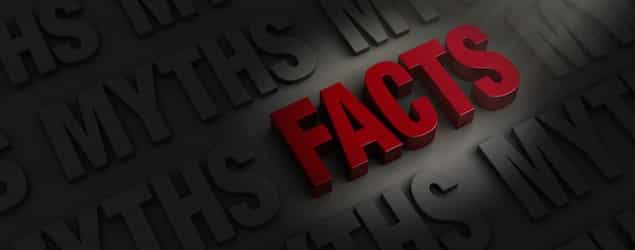The Welfare State Myth – Part 2

This is part 2 of a five-part series. You can find part 1 here.
In his essay, Mike Konczal starts by challenging the view that the American welfare state started with the New Deal. If he can convince us that America was always a welfare state, then not only is it wrong to point to the period before the 1930s as evidence that free enterprise works — but the very notion that American ideals clash with welfare state ideals becomes harder to swallow.
As he puts it, the critics of the welfare state assume “the government hasn’t been playing a role in the management of risk and social insurance from the beginning. [They imagine] that there is some golden period to return to, free from any and all government interference.” But, he asserts, “This was never the case, and a significant amount of research has been done over the past several decades to overturn the myth of a stateless nineteenth century and to rediscover the lost role of the state in the pre-New Deal world.”
What follows is a list of things the government did prior to the New Deal that critics of the welfare state might disapprove of. What’s missing, however, is a distinction and a definition: the distinction between government and government intervention, and a definition of “welfare state.”
Contrary to Konczal, who heralds “a significant amount of research” overturning “the myth of a stateless nineteenth century,” no one actually holds the view that the nineteenth century was “stateless.” That’s a favorite tactic of those who don’t want to acknowledge that the great achievement of the nineteenth century was the particular kind of state Americans created. What was distinctive about the nineteenth century was the degree to which government did not intervene in the economy. The basic orientation of government was to protect individual rights so that individuals were free to pursue their own happiness.
Was it consistent in this regard? Hardly. There were, for instance, regulations, subsidies, controls, and small scale poor relief efforts throughout American history. (Some of the examples Konczal cites as exceptions to free enterprise, such as limited liability and bankruptcy, are achievements of capitalism, not deviations from it.) But it in no way follows that, in Konczal’s words, “there has always been a mixed welfare state.”
And here’s where we need a definition. What is the welfare state? It’s not any state that provides relief to the poor, which is why we cite Bismarck’s Germany rather than, say, sixteenth-century England, as the first welfare state. Here’s how the New Oxford American Dictionary defines the term “welfare state”:
a system whereby the government undertakes to protect the health and well-being of its citizens, esp. those in financial or social need, by means of grants, pensions, and other benefits. The foundations for the modern welfare state in the US were laid by the New Deal programs of President Franklin D. Roosevelt.
I think that’s about right. A welfare state is a social system in which the government aims to take care of its citizens from “cradle to grave”: to feed, to clothe, to house, to heal, to educate everyone. Konczal’s own characterization, which he borrows from President Truman, is apt: “Everybody Gives, Everybody Benefits.”
That in no way describes America before the New Deal — not in practice and certainly not in theory. As I catalog in my forthcoming book, RooseveltCare: How Social Security is Sabotaging the Land of Self-Reliance, early Americans valued hard work, self-reliance, and a limited government that didn’t interfere with those values. This is precisely why they resisted the creation of the welfare state for fifty years — from the rise of Germany’s welfare state to the creation of Social Security in 1935.
The essence of the pre-New Deal system was summed up by Thomas Jefferson in his first inaugural address (1801):
a wise and frugal Government, which shall restrain men from injuring one another, shall leave them otherwise free to regulate their own pursuits of industry and improvement, and shall not take from the mouth of labor the bread it has earned.
Does that sound like a welfare state?
As we’ll see in future posts, whatever the exceptions and inconsistencies, America before the New Deal was not a welfare state but a
capitalist economy built on a foundation of individual freedom and self-reliance. The welfare state was the product of certain intellectual and political leaders who rejected this foundation in the name of an ideology — the same ideology advocated by Konczal.



